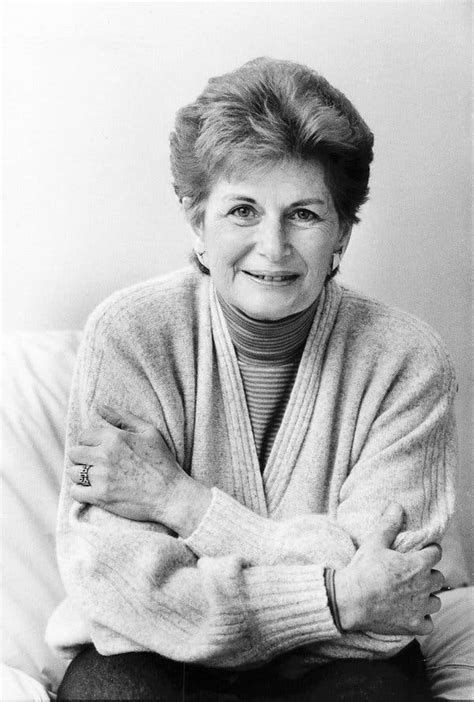Top 26 Quotes & Sayings by Lillian B. Rubin
Explore popular quotes and sayings by an American author Lillian B. Rubin.
Last updated on April 15, 2025.
For sex to be wholly satisfying, we must have at least as much concern for a partner as for self - a requirement that doesn't live comfortably alongside the exhortation to 'do your own thing.' In the end, we are left with an extraordinarily heightened set of expectations about the possibilities in human relationships that lives side by side with disillusion that, for many, borders on despair.
By identifying with the powerful, the disempowered achieve a measure of safety, at least for a moment. By doing the bidding of those in power, they become a necessary part of the system, useful so long as they serve to contain the stirrings and strivings of the oppressed. By making the rules and values of their oppressor their own, they separate themselves from the rest of their group and, temporarily at least, assuage the pain of their stigmatized status.
In our minds lives the madonna image--the all-embracing, all- giving tranquil mother of a Raphael painting, one child at her breast, another at her feet; a woman fulfilled, one who asks nothing more than to nurture and nourish. This creature of fantasy, this myth, is the model--the unattainable ideal against which women measure, not only their performance, but their feelings about being mothers.
Contrary to all we hear about women and their empty-nest problem, it may be fathers more often than mothers who are pained by thechildren's imminent or actual departure--fathers who want to hold back the clock, to keep the children in the home for just a little longer. Repeatedly women compare their own relief to their husband's distress
Indeed, it is that ambiguity and ambivalence which often is so puzzling in women--the quality of shifting from child to woman, theseeming helplessness one moment and the utter self-reliance the next that baffle us, that seem most difficult to understand. These are the qualities that make her a mystery, the qualities that provoked Freud to complain, "What does a woman want?
Interesting, isn't it, that even though more than two and a half decades have passed since the sexual revolution brought women a new measure of sexual freedom, there's still no word in the language that doesn't reek with pejorative connotation to describe a woman who has sex freely. Since language frames thought and sets its limits, this is not a trivial matter. For without a word that describes without condemning, it's hard to think about it neutrally as well. When we say the words 'promiscuous woman,' therefore, it's a statement about her character, not just her sexual behavior.
The authoritarian child-rearing style so often found in working-class families stems in part from the fact that parents see aroundthem so many young people whose lives are touched by the pain and delinquency that so often accompanies a life of poverty. Therefore, these parents live in fear for their children's future--fear that they'll lose control, that the children will wind up on the streets or, worse yet, in jail.
Personal change, growth, development, identity formation--these tasks that once were thought to belong to childhood and adolescence alone now are recognized as part of adult life as well. Gone is the belief that adulthood is, or ought to be, a time of internal peace and comfort, that growing pains belong only to the young; gone the belief that these are marker events--a job, a mate, a child--through which we will pass into a life of relative ease.
That myth--that image of the madonna-mother--has disabled us from knowing that, just as men are more than fathers, women are morethan mothers. It has kept us from hearing their voices when they try to tell us their aspirations . . . kept us from believing that they share with men the desire for achievement, mastery, competence--the desire to do something for themselves.



















